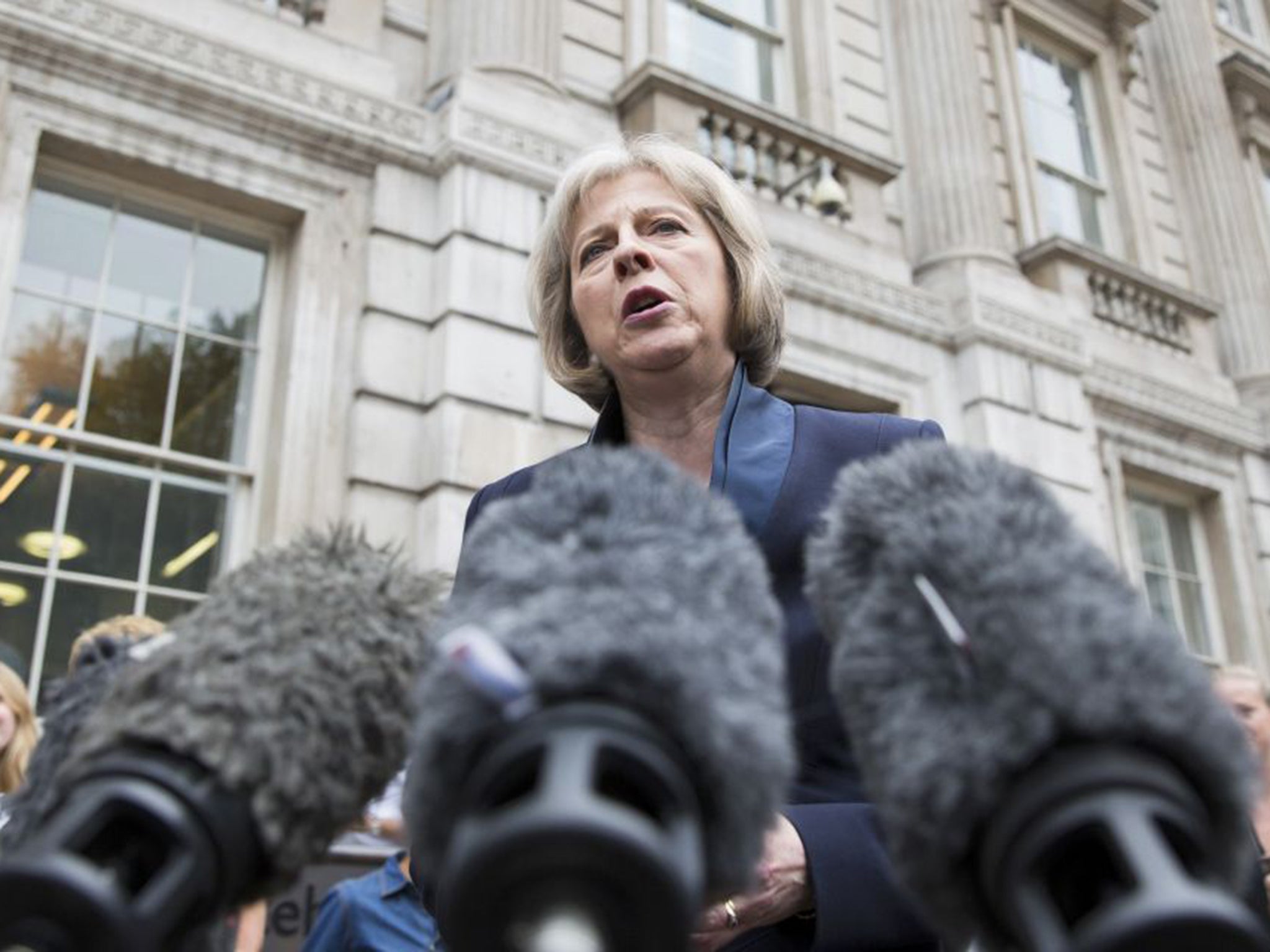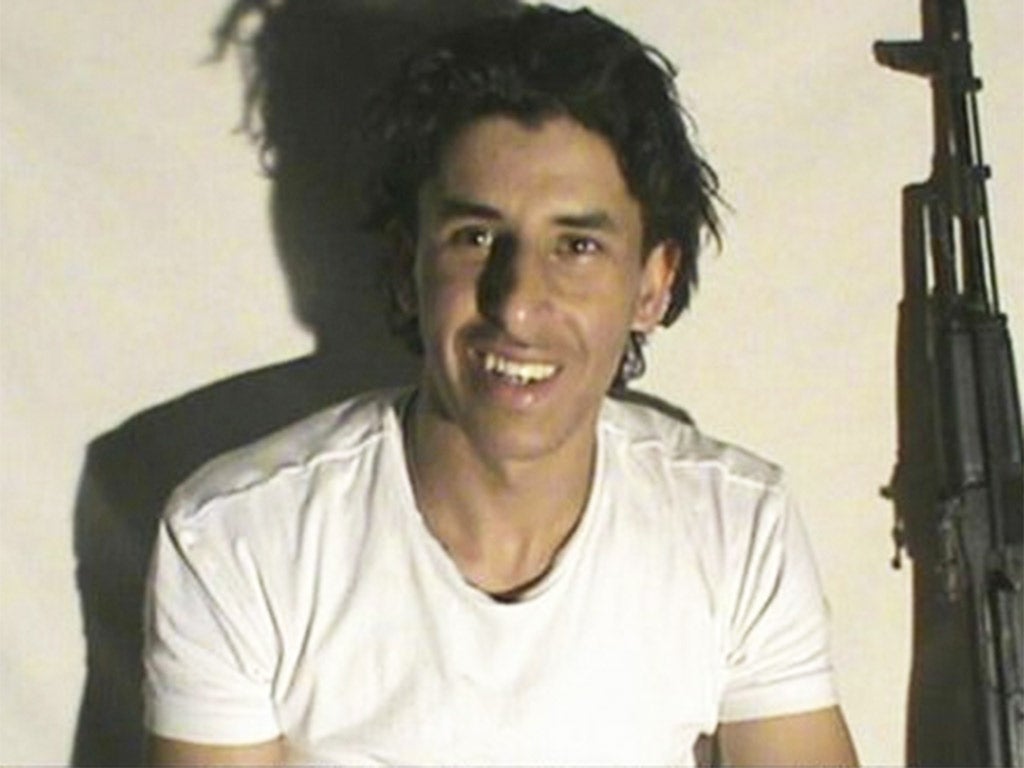The Government doesn't understand terrorism — and it's making things worse
Counter-terrorism should be built on confidence in Britain's ideals, not McCarthyite anxiety

It has been scarcely five months since the Government last passed legislation designed to combat the terrorist threat – in February’s Counter-Terrorism and Security Act 2015. Yet already, following Seifeddine Rezgui’s bloodletting in Tunisia, David Cameron, Theresa May, and other senior ministers have offered fresh promises to ratchet up measures in the fight against extremism and in preventing ideological radicalisation.
Moral panic, rather than sober politics, is at work here. Rezgui was not radicalised in Britain, and his attack tells us precisely nothing about whether UK domestic counter-terrorism policies are currently adequate or inadequate. The concrete implications of the Counter-Terrorism and Security Act are not even clear yet – universities, for example, are still awaiting guidance on what it requires of them. But elements of the Government’s Prevent strategy, combined with the post-Tunisia rhetoric, hint at a misguided ambition to make universities and schools part of a state-directed ideological campaign against the amorphous spectre of “violent or non-violent extremism”. One Prevent consultation, for example, implied that universities may soon be obliged to censor the activities of university societies, monitor students for any “opposition to fundamental British values”, maintain records of those students who do so, and unequivocally denounce or exclude such views wherever they are expressed.
Critics have already highlighted the threat such plans pose to academic and individual freedoms and to those very “fundamental British values” that the Government espouses. The irony that Prevent might itself be deemed extremist under its own definitions is stark. But what has received less attention is a more basic problem: that the Government’s counter-radicalisation strategy simply doesn’t understand leading research on how radicalisation actually occurs, and will be counter-productive in preventing it.
Radicalisation becomes possible when people get secluded in small networks of like-minded friends – the average size is eight – that cleave off from mainstream society. All humans tend ideologically to conform to what seems to be the “local common sense” in the circles they move in. If a vast majority of our friends espouse a view, we will often go along with it, especially when it fits well with our existing sentiments. When an individual’s social network becomes isolated from broader society, it can consequently twist into an extremist echo chamber, draping an aura of plausibility and common sense over even those ideas that are morally reprehensible and utterly disconnected from reality.
This pattern recurs across cases of terrorist radicalisation. It was true of the 9/11 pilots – who hung out exclusively with each other in dorms and a shared apartment in the Hamburg suburb of Harburg, affirming and re-affirming each other’s progressively more radical views. The same story applies to the 2004 Madrid bombers, and to Anders Behring Breivik, the far-right perpetrator of the 2011 Norwegian attacks (although his secluded social network was an online community). So too for Rezgui in Tunisia.
It’s hard to prevent such radicalising social networks from emerging. But the very worst strategy is to actively discourage students from expressing their views in school and university classes or societies out of fear that academics or teachers are monitoring them and will condemn them or brand them “vulnerable to extremism”, or will prohibit certain topics or speakers from being engaged with. But this is precisely what Prevent does: it directly encourages young people to move their politics into exactly the secluded social networks that facilitate radicalisation.
This is hugely dangerous. And it is exacerbated by the persistent deployment – by politicians, much of the media, and Prevent – of a comforting but false portrayal of the ideological battle underpinning terrorism as occurring between a set of blatantly awful extremist ideas on the one hand, and an uncontestable set of fundamental British values on the other.
This completely misses the core challenge of radicalisation: that terrorist ideologies build off ideas that are not themselves obviously ridiculous, and which need to be distinguished from genuine extremism. As Professor Scott Atran, a terrorism expert at the Centre National de la Recherche Scientifique in Paris, summarises his interviews with those who volunteered to fight in Iraq: “Some mentioned stories of women raped, the killing of innocents and desecrations of the Koran, but all mentioned Abu Ghraib.” Anger at recent Western interventions in the Middle East, suspicion of government security policies that are perceived unfairly to stigmatise Muslims, a belief that societies should offer protections to certain religious values perceived as sacred – these form the initial hooks on which much more dangerous notions anchor themselves. Many may disagree with such sentiments, but they are not “beyond the pale” in any nation that wishes to call itself a free society. Responding to such views with denunciations of “extremism” plays completely into the hands of genuinely radicalising terrorist ideological narratives.

By contrast, an effective counter-terrorism approach should be built on a confidence in the existing ideological foundations of British society, rather than the almost McCarthyite anxiety visible in Prevent. Every day, schools and universities spread both the liberal values that discredit and undermine extremism and provide the learning environments in which those values are manifest – without any need for government-imposed obligations that will only serve to raise student distrust and hostility. The same is true of civil society.
This requires that we resist the urge to demonise all attitudes critical of Britain as “extremist”, instead distinguishing hostile but non-abhorrent ideas from genuinely dangerous ones. And it requires renouncing attempts to force our educational institutions to become foot soldiers in a battle against forces the Government continues to misunderstand.
Join our commenting forum
Join thought-provoking conversations, follow other Independent readers and see their replies
0Comments